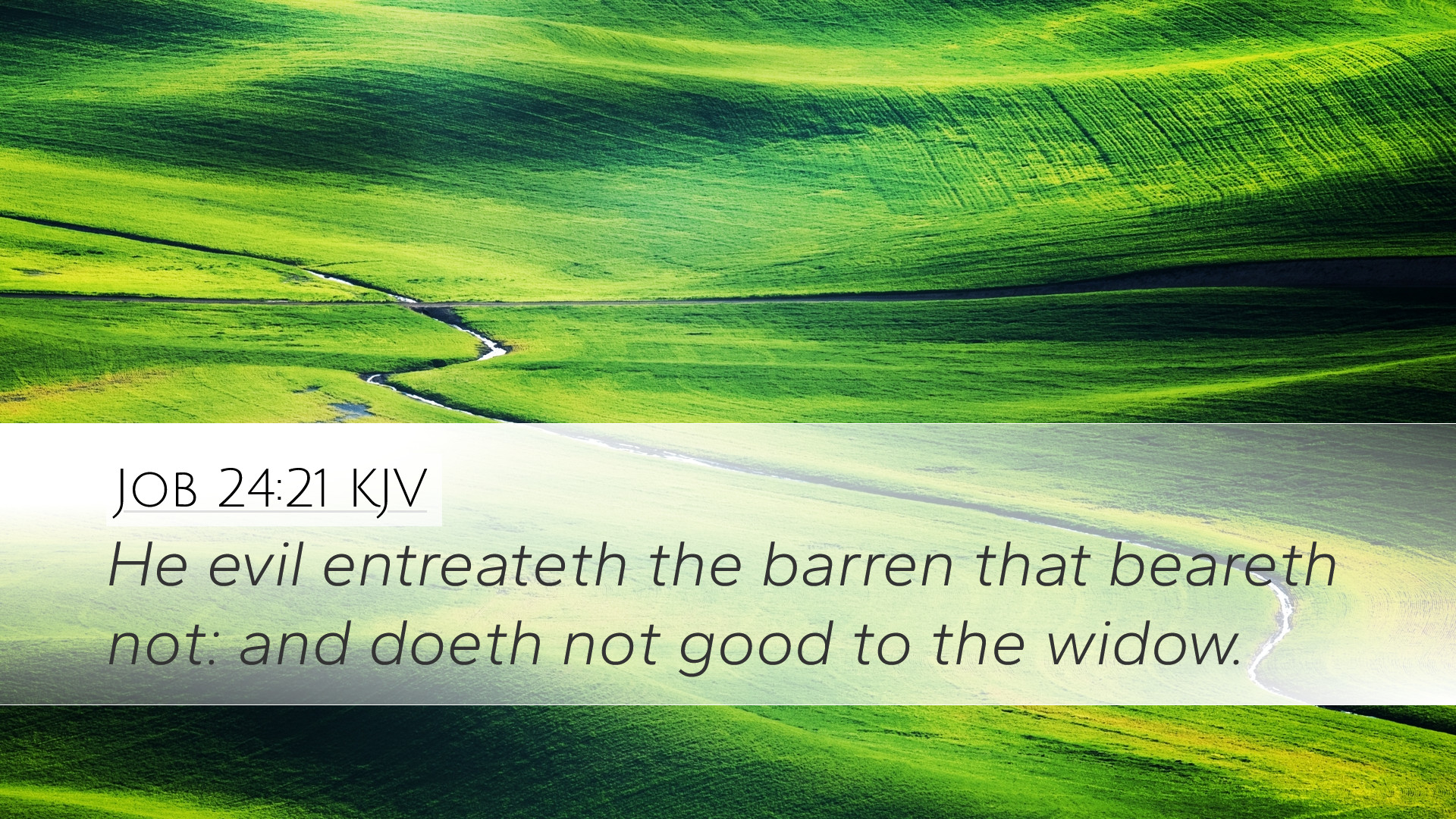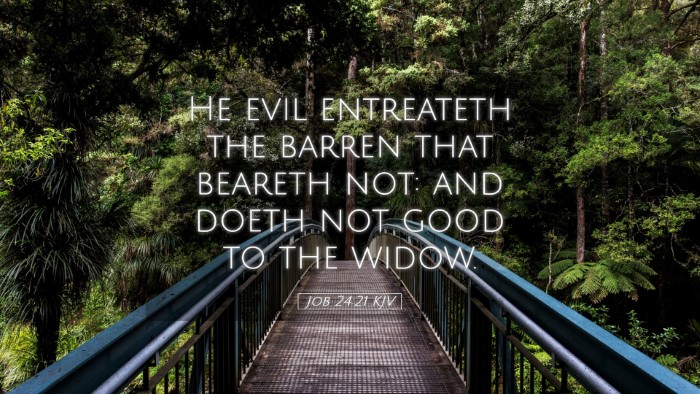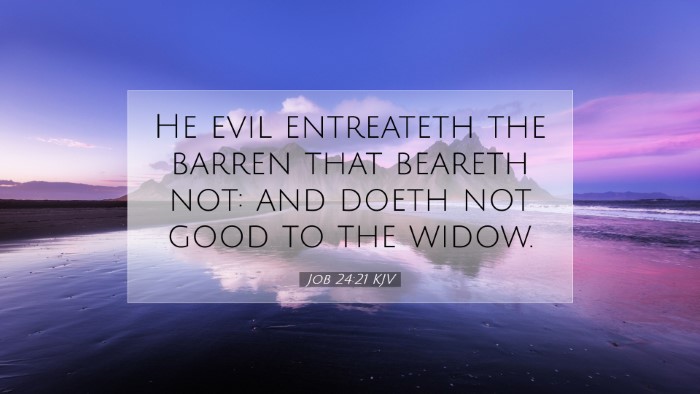Old Testament
Genesis Exodus Leviticus Numbers Deuteronomy Joshua Judges Ruth 1 Samuel 2 Samuel 1 Kings 2 Kings 1 Chronicles 2 Chronicles Ezra Nehemiah Esther Job Psalms Proverbs Ecclesiastes Song of Solomon Isaiah Jeremiah Lamentations Ezekiel Daniel Hosea Joel Amos Obadiah Jonah Micah Nahum Habakkuk Zephaniah Haggai Zechariah MalachiJob 24:21
Job 24:21 KJV
He evil entreateth the barren that beareth not: and doeth not good to the widow.
Job 24:21 Bible Commentary
Commentary on Job 24:21
Job 24:21 states:
"He evil entreateth the barren that beareth not, and doeth not good to the widow."
Introduction
This verse addresses the nature of iniquity, particularly in how the wicked exploit the vulnerable. In examining this passage, insights from cherished public domain commentaries present a multidimensional understanding of the social and spiritual implications of injustice and divine justice.
Overview of Job's Context
The Book of Job is a profound exploration of suffering, righteousness, and the character of God. Job, as a righteous sufferer, challenges the simplistic belief that suffering is always a consequence of personal sin. In this context, the verse highlights another layer of injustice—the moral depravity of the wicked who take advantage of the powerless.
Insights from Matthew Henry
Matthew Henry emphasizes the dual focus of this verse:
- The Exploitation of the Vulnerable: Henry notes that the barren woman represents those who, despite potential for life and fruitfulness, find themselves in despair. The wicked show no mercy to her plight, demonstrating their heartless disposition.
- The Indifference to the Widow: The widow, who has lost her protector, signifies helplessness in society. Henry argues that neglecting her needs is emblematic of further moral decay in human relations.
Henry concludes by reminding the reader that society's treatment of its weakest members reflects much about its overall moral condition. It highlights the necessity of compassion and justice.
Insights from Albert Barnes
Albert Barnes brings a theological perspective to this verse:
- The Nature of the Wicked: Barnes posits that the actions described reflect the inherent wickedness of humanity. The verse serves as a condemnation of those who are so consumed by their own desires that they neglect the needs of others, particularly those facing dire circumstances.
- Judgment Against Injustice: Barnes asserts that this passage foreshadows the eventual judgment that will befall such evildoers. The lack of kindness will not go unnoticed in the eyes of God.
In Barnes's view, the verse directly challenges the reader to reflect on their obligations toward the marginalized, urging the righteous to continually seek justice and mercy.
Insights from Adam Clarke
Adam Clarke provides an intricate analysis of the Hebrew language and cultural context:
- Language Nuances: Clarke analyzes the terms used in the verse, suggesting that the Hebrew words imply depth of suffering and loss associated with childlessness and widowhood. This linguistic analysis enhances the emotional weight of the plight being described.
- Comparison with Cultural Norms: He highlights that in ancient Israelite culture, both the barren and the widow occupied lower societal status, making their suffering tragically emblematic of the broader injustices present in society.
Clarke encourages readers to apply these insights to recognize similar injustices today, fostering a compassionate response in contemporary contexts.
Application for Pastors and Theologians
This verse provides critical themes for sermon development and theological reflection:
- Call to Justice: The church is summoned to stand with those who are oppressed and disenfranchised. It emphasizes the practical outworking of faith through compassion.
- Teaching on the Nature of God: God’s character is juxtaposed against the actions of the wicked. Preaching on this theme inspires a deeper understanding of divine justice and mercy.
- Encouragement for the Vulnerable: Pastors can use this verse to encourage the vulnerable, reminding them that their plight is seen by God and that their situation does not go unnoticed.
Conclusion
Job 24:21 presents a poignant reflection on human relationships and the moral obligations surrounding care for the vulnerable. By integrating the insights from Matthew Henry, Albert Barnes, and Adam Clarke, we gain a richer understanding of how divine justice intersects with human actions. This verse sets before believers a challenge and a call to live justly, ensuring that the plight of the marginalized is never ignored, effectively echoing God’s heart for justice and mercy throughout generations.


